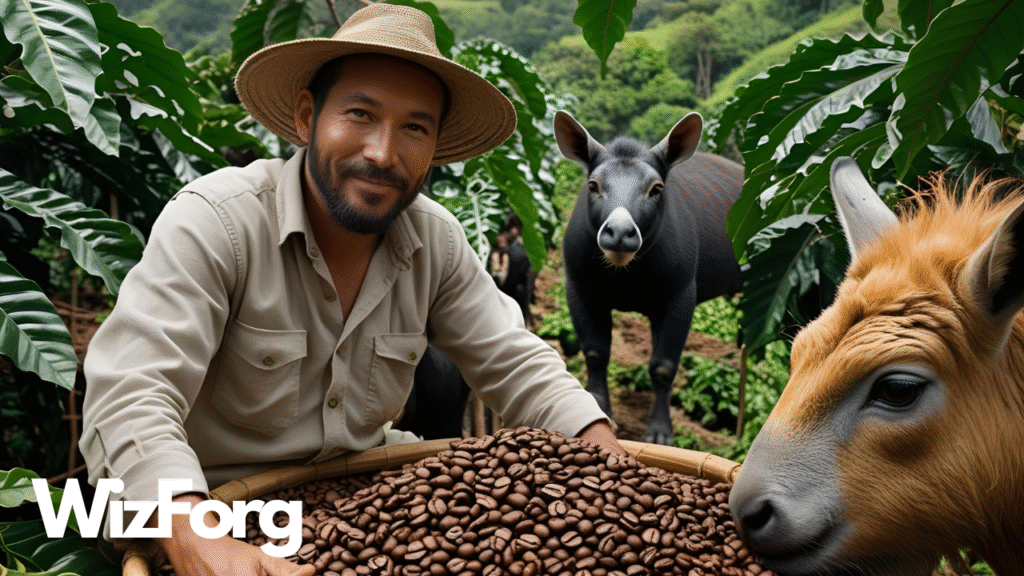High-end coffee lovers might wonder how animals process coffee beans; animal poopcan fetch hundreds of dollars per pound. The story behind this eccentric brew is as unexpected as its name: kopi luwak. Here’s how this unusual origin leads to some of the world’s rarest and costliest cups of coffee.
1. From Bean to Brew: The Civet’s Role
Kopi luwak originates in Indonesia, where small mammals called Asian palm civets roam coffee plantations. These civets nibble ripe coffee cherries, digest the fruity outer layer, and excrete the inner beans intact. Farmers then collect, clean, and roast these beans.
Enzymes subtly alter the beans’ proteins inside the civet’s gut, transforming their flavor profile. The result? Unlike conventional coffee, it is a smoother, less acidic brew with a mild, chocolatey undertone.
2. Extreme Rarity Drives Up Price
Coffee lovers prize kopi luwak’s unique taste. But there’s more than flavor at play; it’s also exceedingly rare. Every batch depends on civets finding and eating only the best berries, and collecting beans is labor-intensive.
Limited supply + high demand = pricing from $100 to $600 per pound. In exclusive cafés worldwide, a single cup can cost as much as a fancy dinner.
3. Ethical and Sustainability Concerns
As the popularity of Kopi Luwak soared, so did the concerns. Wild civets were captured, caged, and fed only coffee cherries to maximize production, often in poor living conditions. Birdsong farms and ethical organizations raised alarms, pressing for transparency.
Many reputable producers now guarantee wild-fermented kopi luwak, where beans come from civets living free and eating a natural fruit-based diet. Look for certifications or farm visits if you want guilt-free indulgence.
4. Authentic vs. Fake
Because kopi luwak costs so much, counterfeits abound. Some producers soak regular beans in digestive enzymes or blend minimal civet-processed coffee with conventional beans to cut costs.
To catch a genuine cup, buy from trusted sources that provide traceability, batch numbers, and proof of ethical sourcing. Transparency is key at this luxury level.
Sip, Savor, or Skip?
If you’re searching for a unique tasting experience, Kopi Luwak offers an unforgettable journey into coffee. But it’s not a brew for everyone. Ethical considerations, inconsistent flavor, and steep price tags make it a divisive choice.
Still, a legal, ethically sourced cup could be worthwhile if you’re an adventurous coffee enthusiast. Choose wisely.
Want more fascinating food stories and culinary truths?
Explore the oddest luxury foods and their origins at Wizforg.
Comment below: Would you spend $100 on a cup of coffee? And don’t forget to like, share, or subscribe for more uncover-the-weird dives!



